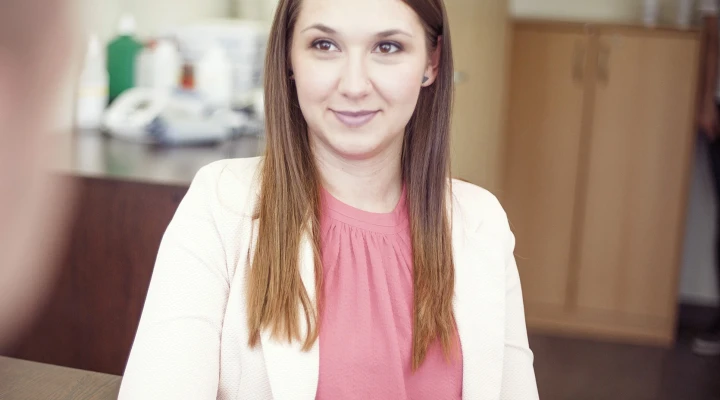You can read the first part of the conversation here
Of course, the RMC doctors regularly send you patients so you can use your toolbox of methods and advice to help improve basic medical treatment. When can you provide the most effective assistance?
Valentina Doma (VD): The tools that we use are as follows: recording the patient's diet history, lab results, analysis of findings, potentially a body composition analysis, assessment of a food diary, transfer of basic dietary principles (advice).
If the patient is open and motivated to play an active role in shaping or restoring their health, that's a great base to build on – whether the problem is relatively minor or more significant. Ideally, it should be a joint effort, where the doctor recommends an expert in nutritional science, the dietician presents the right tools to the patient, and the patient then takes control of themselves and their health. We can work most effectively if we think in small steps. Adjusting your lifestyle – like changing any single habit – doesn't happen overnight, you need regular dietary monitoring at certain intervals, with assessments and new goals. We can talk for ever about nutrition, but I also think it's important to create an informal, friendly and motivated atmosphere during these consultations.
Emese Eeszter Kudron (KEE): Unfortunately, a lot of patients end up at the doctor when there is some kind of loss of balance. The dietician can help restore that balance. Not to mention the fact that if someone has a good diet, any medication might also be more effective.
When does the average person decide to visit a dietician? Is there a particular season, or perhaps it depends on their age or sex?
VD: You can help prevent a lot of illnesses through good nutrition, such as diabetes, insulin resistance, high blood pressure, arthritis, gallstones and various forms of cancer. The right nutrition can also lead to significant changes in the course and maintenance of other diseases, such as inflammatory bowel disease (Crohn's disease), or an under or overactive thyroid gland.
My own experience has shown me that in terms of seasonality, the start of spring (wearing fewer, lighter items of clothing), the start of school (when we want to bring some order to our lives, which also affects eating), and the post-Christmas period (New Year's Resolutions) are the most favorable times for making a change.
Just like in healthcare in general, women are more likely to visit a dietician, though fortunately I am also seeing more and more men who are aware of the importance of eating right. Some want to have the right diet for sport, for example, to improve their performance, or to get rid of some excess weight more easily.
In terms of age, our patients really vary. An increasing number of children are affected by various food allergies or food intolerances, or are fussy eaters. More and more teenagers are experiencing some kind of body image disorder related to nutrition and eating. In this case, advice from a dietician can be a great accompaniment to the work of a psychologist.
EEK: One positive development is that more and more people are interested in the quality of food they put in their body. It is also important that if someone begins a new diet or makes additions to their diet, they should consult a dietician. With just an hour's consultation, they can make sure that they will be getting all the nutritional content they need.






